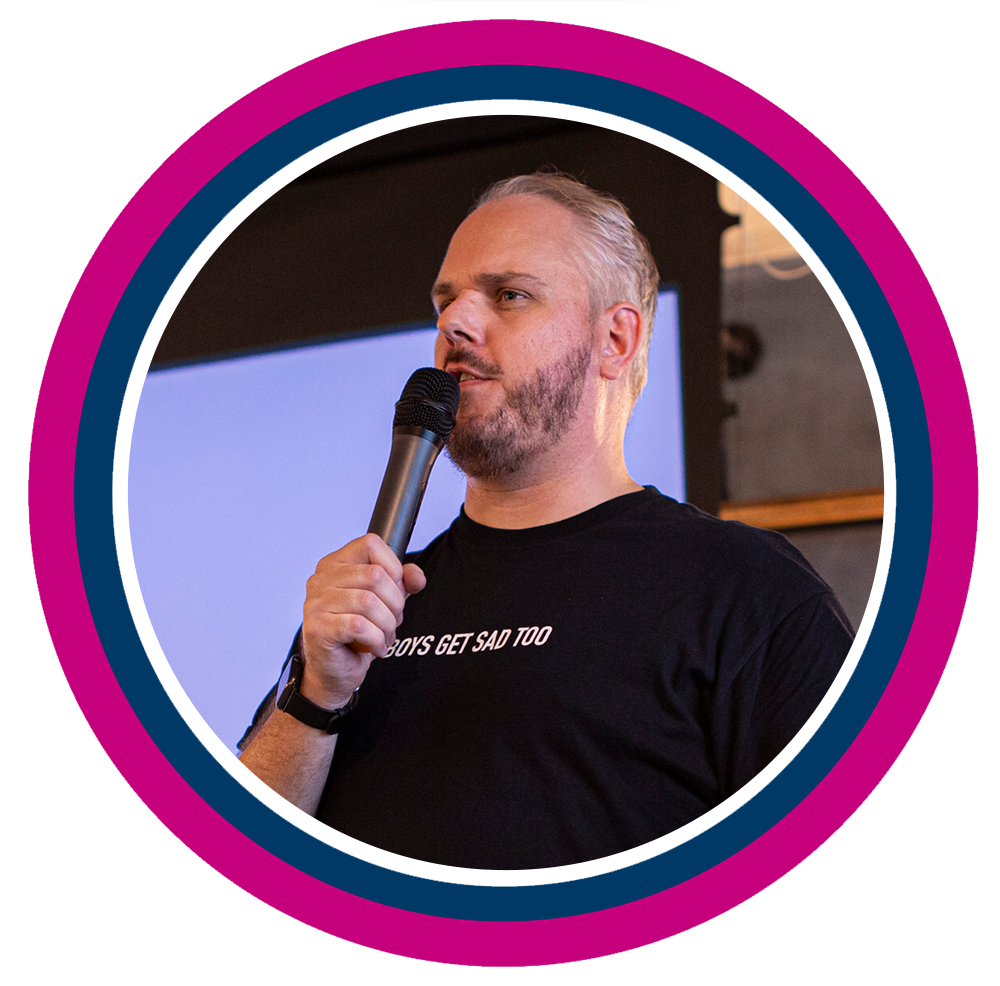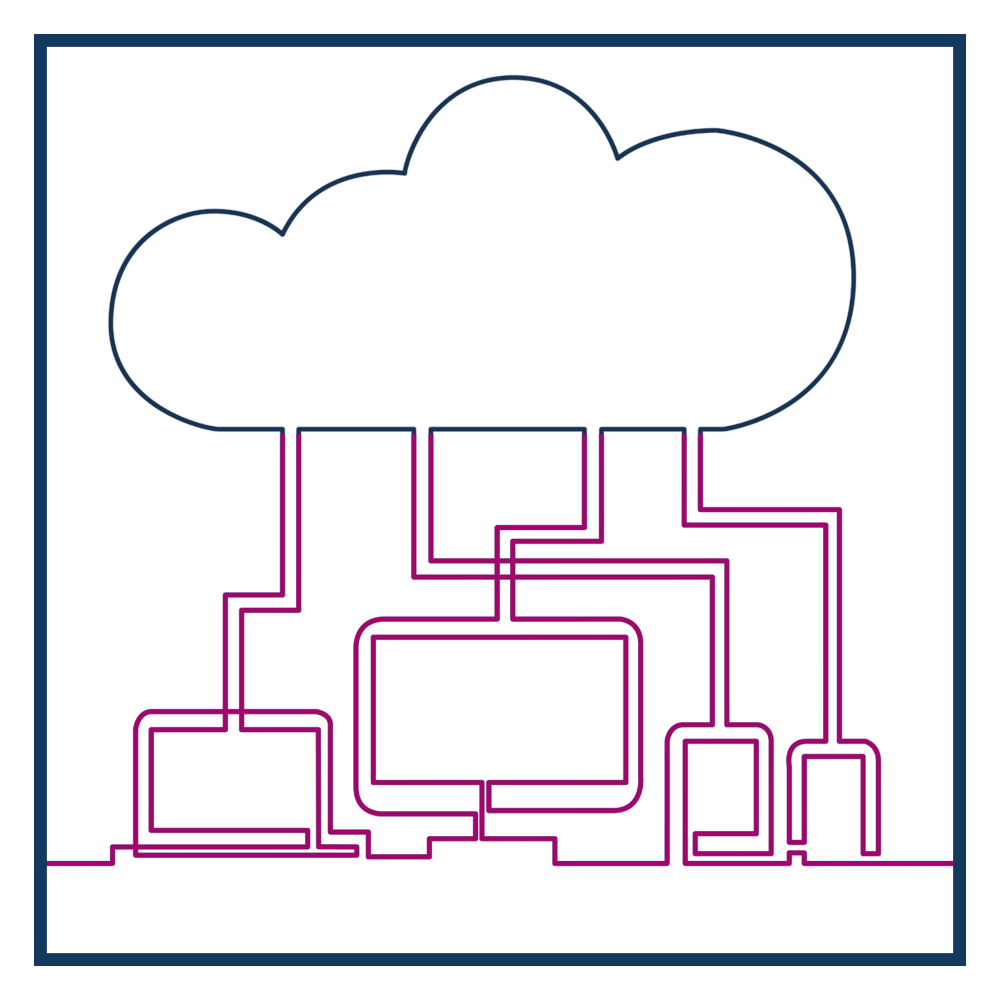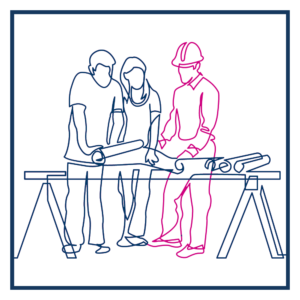Article Summary
AI has been getting a lot of press recently and, rightly or wrongly, the prospect of a future dominated by such technology scares many. But what does it mean for the world of work? Is AI a friend or foe? Does it have the potential to make our working lives better – or worse? Ahead of our Make Work Better conference in September, where he’s one of our speakers on just this topic, we’ve spoken to Gethin Nadin, the award-winning psychologist and author, about what greater use of technology means for employee wellbeing and, indeed, what it means for the future of our jobs themselves.
Is AI going to take our jobs?

Award-winning author & Benefex CIO, Gethin Nadin
“Most people don’t really appreciate how endemic AI already is in our lives,” says Gethin. Currently one of HR magazine’s Most Influential Thinkers for 2023 and the Chief Innovation Officer at Benefex, a company which uses technology to improve the employee experience, he’s keen for people to take a step back and appreciate how much this kind of technology already helps us.
Many of the apps on our phones use AI and so we’re aware how much easier and quicker it’s made doing things like personal admin. Yet when it comes to our work we don’t always see the efficiencies technology can bring because it involves our livelihoods. When it’s about jobs, he says, the question is always, “if 50% of my work can be done by AI or any kind of workplace technology, where does that leave me?”
The truth is AI and automation will take some of our work away. Early research from the USA, he says, estimates that large natural language processing models, like ChatGPT, will impact about 20% of everyone’s jobs, regardless of the industry they’re in. Rather than fear it though, he points to the opportunities. It could, for example, allow for the wider implementation of a four-day working week.
“Handled the right way,” he says, “AI can actually start to deliver some of the gains we need to see in employee wellbeing by relieving some of the pressure people are facing.”
It also has the potential to allow people to focus on the more interesting aspects of their work because, despite its name, AI can’t think for itself and works best when it’s performing repetitive tasks. Here he gives HR as a prime example: “Frequently in the research that I’ve conducted over the last few years, HR teams say they don’t have enough time and resource to be as strategic as they’d like to be…If you’re actually able to go to those people and say, look, we found a way that can take some of the admin burden away from you and free up your time so that you can spend more time with people strategising in front of a white board, most would bite your hand off.”
Is your organisations pursuit of better technology detrimental to employee wellbeing?
Or can we alleviate the negative impacts of technology if we put wellbeing first? Gethin Nadin and Beth Samson discuss the intersection of employee wellbeing and technology

“For anyone who might be cynical, Gethin cites the pandemic and the way it helped people realise that while “we really need tech, we also really need people.” The insurance industry, inundated by travellers wanting to know how the changing travel rules were going to affect them, found “tech wasn’t able to deal with some of those phone calls in the empathetic way we needed them to.” CEOs too started video-calling people more just to check in on them. “We saw that the human experience was a really important part of the workplace.” Rather than being scared, he says, people need to “start to see a life where technology exists alongside them.”
When it comes to who will have the biggest influence on whether AI and automation is adopted in a way that’s beneficial to the workforce, Gethin believes it will be business not government, not least because it’s more trusted.
Many businesses now realise the important role they play in keeping people safe from harm. Here, Gethin points to progressive companies already looking at how technology is going to change their business model and doing it with their employees’ job security and wellbeing front of mind. “IKEA, for example, is starting to identify that there are clearly roles in their organisation which are going to be taken over by technology and so they’re now starting to retrain some of the people that work with them in those roles, in advance of those roles disappearing.”
There are, of course, potential pitfalls and challenges organisations need to be mindful of and the biggest concern is around data – what’s being used and how it’s being used.
On the what, Gethin says, “you need to have some very clear guidelines and codes of conduct on how you can use that data.” When it comes to the how, we’ve already seen lots of examples where AI demonstrates bias because of the information it’s drawn from the internet. “The data that’s used to inform a lot of the technology we use in the workplace needs to be thought about and this also plays to the fact that are we really thinking about the end users of this technology and any policies that we might put in place?”
What does ChatGPT mean for HR – Award-winning author & Benefex CIO, Gethin Nadin, and Investors in People’s Beth Samson, discuss the implications for usage of AI in HR strategy and practices.
Open and transparent communication is key
The best way to alleviate your employees’ concerns – and make sure you implement changes in a way that’s positive for your staff – is with good communication. But when it comes to technology, Gethin notes this isn’t an area where organisations have good form, even when their motives have been good: “Technology decisions historically have always been made in the dark; employees only know about new technology when it’s launched.” The reason for this, he believes, is that “we’ve been quite self-centred as businesses. We talk about how we want tech to enhance the business. We don’t think about how tech enhances the employee experience.” In the future, if we want to get things right, “we’ve got to involve people in the decision making.”
And this is something we at Investors In People advocate too.
Here’s our People Director, Beth Samson’s advice: “There needs to be really active involvement from a cross-section of the organisation so that you know what tasks could be replaced and what the impact will be. You could use things like time studies – the difference between the previous ways of working and new ways of working. Don’t just let it pass you by though, because if you wait this one out you’re in danger of being like a company that doesn’t use calculators or sat-navs. [AI] is going to become so much a part of the fabric of how we work that we won’t believe we never had it before.”
If you’d like to hear more from Gethin, not just on AI but on the implications for workplace wellbeing around our increasing use of all types of technology, sign up to our Make Work Better conference. Because although positive about the employee’s future in a technology-dominated workplace, Gethin sums up the debate we need to be having now about how best to use AI like this: “Tech has brought with it a whole new set of problems, but it’s also solved an awful lot of problems…As with everything, it’s a balance – and we need to find that balance.”







